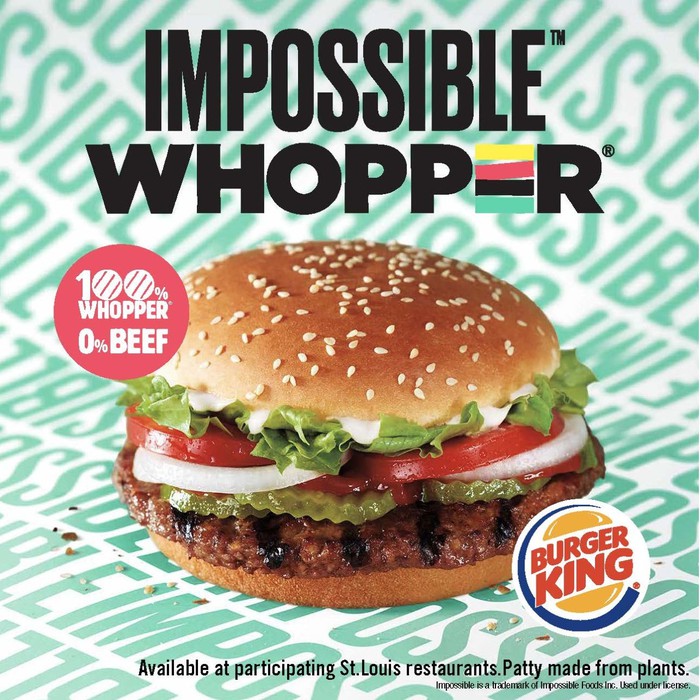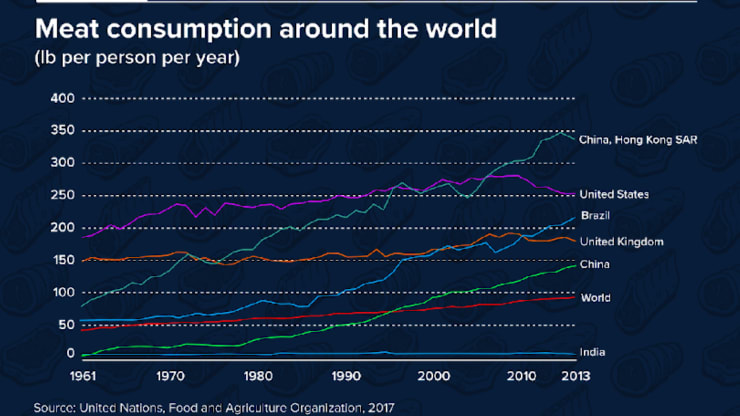In the past few years that has been a sudden boom in the plant-based meat industry. The trend has become so popular that many of your favorite fast-food chains have deals cut out with the big name brands such as Impossible Foods and Beyond Meats. With chains releasing new plant-based menu items recently, it has shown that the potential for this industry may have not hit its peak quite yet.
According to reports by the Plant-Based Food Association, sales from plant-based foods in 2018 were higher than $3 billion. Despite all the excitement and craze for plant-based meats, many are still skeptical that this isn’t going to help drive revenue for fast food chains. With a reduced number of beef products hitting the shelf, the benefits for our ecosystem are positive but this will come at the cost of the farmers who have dedicated their lives to the industry. Plant-based products have the opportunity to completely change the fast-food market but will leave behind the cattle farmers in doing so.
In October, following the addition of the “Impossible Whopper” to their menu, Burger King’s parent company Restaurant Brands saw a 5% rise in sales for the quarter which is the highest growth the company has seen since 2015. Burger chains weren’t the only ones to capitalize on the hype. As for fast-food giant KFC, the company partnered up with Beyond Meat for a plant-based chicken nugget. The chain test trialed the product at an Atlanta location and it sold out in the same month it was released.

The repercussions of the meat industry are evident with a rise in deforestation due to cattle as well as the carbon emissions in the atmosphere. But many benefits show us that we should not cut out beef entirely.
Cows essentially convert cellulosic energy which is then turned into a tasty meal that can be consumed by humans. According to Frank Mitloehner of UC Davis, half of all land in California is marginal land and without cattle, you could not use that land and that two-thirds of all agricultural land could not be used for food production for people. In addition to that the excretions from cows help fertilize the soil which helps to bring us the best quality of crops to consume.

Around the world consumption for meat is still on the incline but as for the United States and the United Kingdom, the “meat peak” may have been reached in 2010. The alternative meat industry is proving that this “fad” isn’t going away anytime soon. The cattle industry is going to need a major re-adjustment for their business model now that the fast-food chains are going to be the central distributor for their products. The stigma of a different kind of fake meat has now turned into a positive market ploy for the chains to stay relevant in a culture seeing a rise in vegans.
Additional Sources
https://www.cnn.com/2019/10/28/investing/restaurant-brands-earnings-burger-king-popeyes/index.html